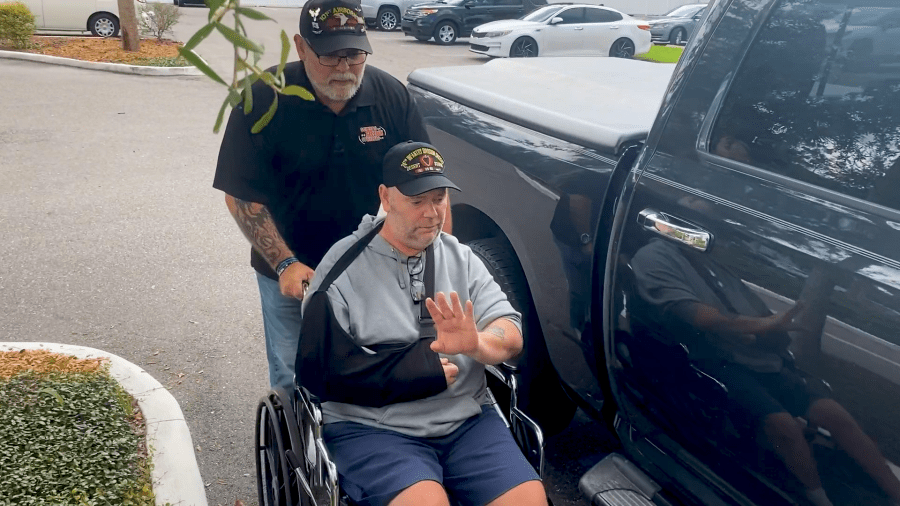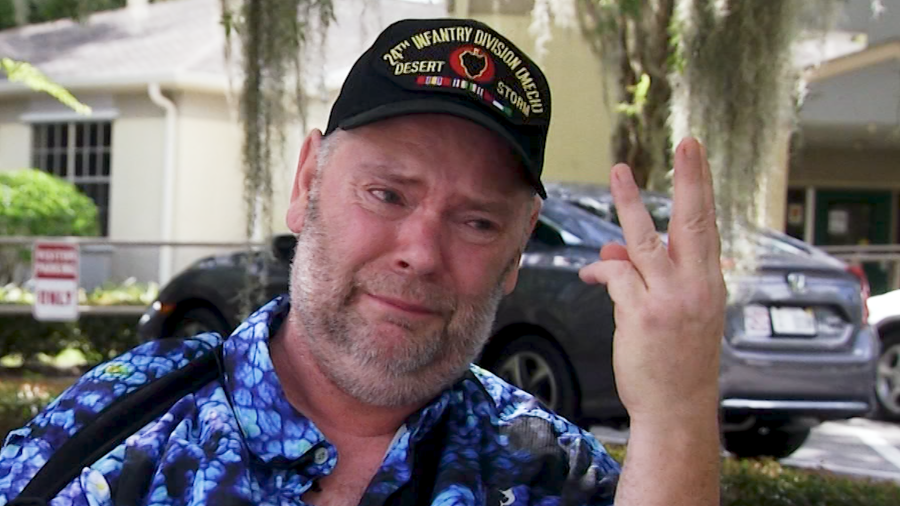INVERNESS, Fla. (WFLA) — Mike Duplisea claimed 11 medical issues were connected to his service in the army that included combat during the Gulf War and exposure to toxic burn pits.
After a stroke confined him to a wheelchair and limited his ability to communicate verbally, he applied for disability with the Department of Veterans Affairs (VA) in October 2021. 8 on Your Side found out the VA denied all eleven claims “in accordance with applicable laws.”
“No,” Duplisea said when asked if he was notified about the denial.
A month after the Army veteran told his story, the VA did an about face, granting him 100 percent disability on his Post Traumatic Stress Disorder (PTSD) claim alone.
Duplisea was asked if he was surprised by the long-awaited approval.
“Yes,” he said.
He indicated he thought the claim would never be approved.

At that point, the frustrations and emotions came out for the 52-year-old Inverness resident.
He nodded his head to indicate his tears were about relief, mixed with frustration for how long it took.
He held up three fingers, reflecting back on when the process started with his brother-in-law Jason Bucy. Before the claim was filed, Bucy helped him piece together his service record with Duplisea’s limited ability to communicate the details.
“You asked him how long it took and he raised his fingers and showed you. It shows he has cognitive ability,” Bucy said. “His brain is all still there. I can’t imagine being so frustrated to be stuck inside my own body and not be able to communicate with anybody.”

Duplisea will be moving soon and expects to use his benefits to get therapy to improve his quality of life.
Bucy and Duplisea said they are relieved the claim was finally approved but they want more outreach for other veterans who cannot communicate well.
“Without [8 On Your Side] and Congressman Gus Bilirakis, this doesn’t happen,” Bucy said. “We were ignored. We didn’t even know we were denied.”
“Yes,” Duplisea said after he was asked if more should be done to reach out to non-verbal veterans.
Bucy called on the VA and Veterans Service Organizations to get out into their communities and check on all veterans.
“Get out of the office. Start beating feet. Start coming to these nursing homes,” Bucy said. “It would take them two hours to go through a home and talk to the veterans and say, ‘Do you need anything from us.’ “






